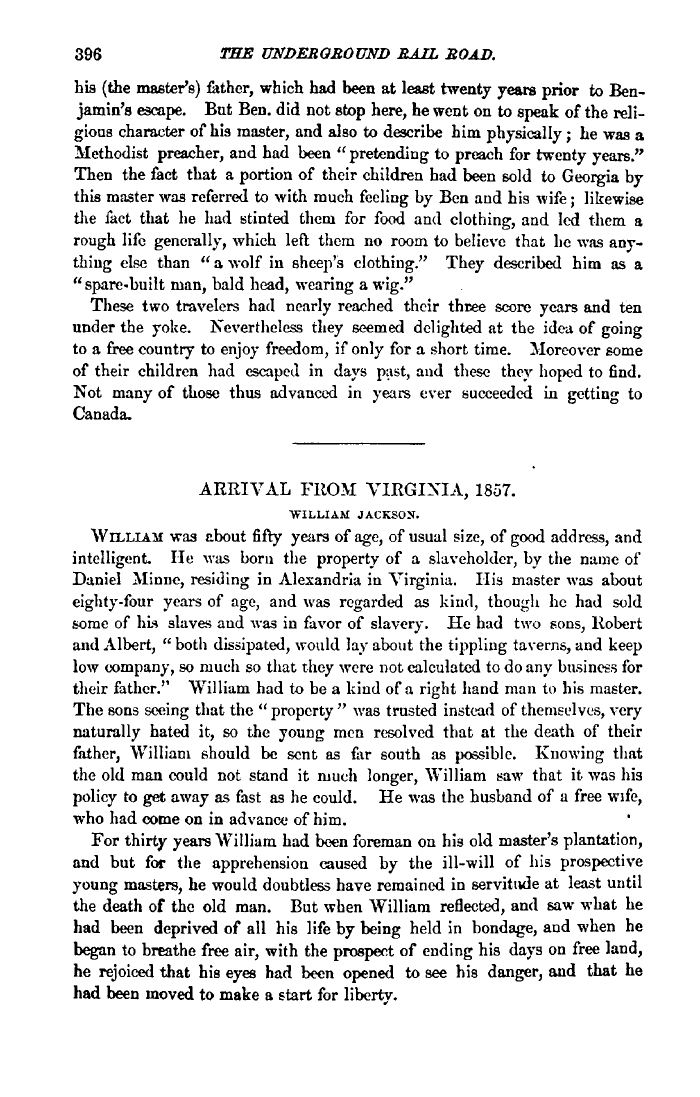 |
||||
 |
||||
| 396 TEE UNDERGROUND RAIL ROAD. his (the master's) father, which had been at least twenty years prior to Benjamin's escape. But Ben. did not stop here, he went on to speak of the religious character of his master, and also to describe him physically; he was a Methodist preacher, and had been " pretending to preach for twenty years." Then the fact that a portion of their children had been sold to Georgia by this master was referred to with much feeling by Ben and his wife; likewise the lact that he had stinted them for food and clothing, and led them a rough life generally, which left them no room to believe that he was anything else than " a wolf in sheep's clothing." They described him as a " spare-built man, bald head, wearing a wig." These two travelers had nearly reached their three score years and ten under the yoke. Nevertheless they seemed delighted at the idea of going to a free country to enjoy freedom, if only for a short time. Moreover some of their children had escaped in days past, and these they hoped to find. Not many of those thus advanced in years ever succeeded in getting to Canada. ARRIVAL FROM VIRGINIA, 1857. WILLIAM JACKSON. WELLIAM was about fifty years of age, of usual size, of good address, and intelligent. He was born the property of a slaveholder, by the name of Daniel Mimic, residing in Alexandria in Virginia. His master was about eighty-four years of age, and was regarded as kind, though he had sold some of his slaves and was in favor of slavery. He had two sons, Robert and Albert, " both dissipated, would lay about the tippling taverns, and keep low company, so much so that they were not calculated to do any business for their father." William had to be a kind of a right hand man to his master. The sons seeing that the " property " was trusted instead of themselves, very naturally hated it, so the young men resolved that at the death of their father, William should be sent as far south as possible. Knowing that the old man could not stand it much longer, William saw that it was his policy to get away as fast as he could. He was the husband of a free wife, who had ootne on in advance of him. For thirty years William bad been foreman on his old master's plantation, and but for the apprehension caused by the ill-will of his prospective young masters, he would doubtless have remained in servitude at least until the death of the old man. But when William reflected, and saw what he had been deprived of all his life by being held in bondage, and when he began to breathe free air, with the prospect of ending his days on free land, he rejoiced that his eyes had been opened to see his danger, and that he had been moved to make a start for liberty. |